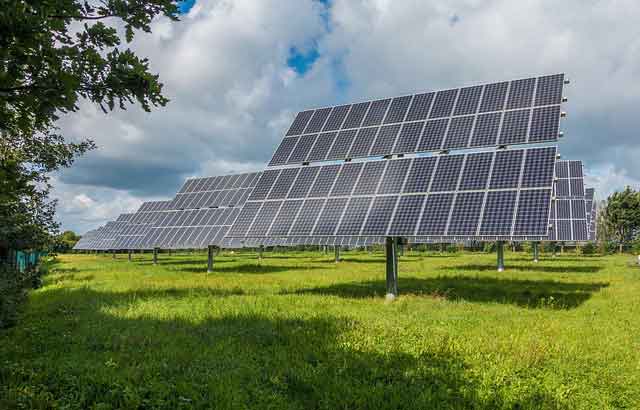German solar firms hit by price war
By Reuters
Substation Relay Protection Training
Our customized live online or in‑person group training can be delivered to your staff at your location.

- Live Online
- 12 hours Instructor-led
- Group Training Available
Q-Cells, one of the world's largest maker of solar cells, said it would slash 500 jobs, nearly a fifth of its workforce, as it seeks to adapt to the price slump that caused a first-half loss of 47.6 million euros (US$67 million) before interest and tax.
"We had to take this step to ensure our survival," Q-Cells Chief Executive Anton Milner said at a conference call.
Germany — which is expected to overtake Spain as the world's largest solar market this year — has seen its solar panel components industry hit by Asian rivals that have been offering high quality products at much lower prices.
This has already forced some players, such as Bosch's Ersol, to move production abroad.
Meanwhile Conergy, which makes wafers, cells and modules, posted a net loss of 31.1 million euros, but said it expects to return to profitability next year when the industry is expecting to benefit from big solar power subsidy programs in China and the United States.
Such producers of silicon, wafers, cells and modules — at the start of the solar power industry's value chain — have been bitten much harder by the price fall than companies that install or market solar power systems to end-users.
Cells are used to make larger modules and panels that can be installed on houses or in free-field plants to generate energy from the sun.
"End-customer contact is the decisive element in the sector, as demand there is relatively stable," said Arthur Hoffmann, who manages the New Power Fund at Swiss Bank Sarasin & Cie.
Germany's Phoenix Solar, a wholesaler of modules and components, reported that it made small net profit and kept its 2009 forecast for sales of 520 million euros.
Chief Executive Andreas Haenel told Reuters that demand had picked up further in the third quarter, but the company was not able to fully escape the pricing pressures in the industry in the first half of the year.
Aleo Solar, a module maker with close end-customer contact that made headlines this month after it received a takeover offer from Bosch, also said that deliveries had picked up in the course of 2009.
Whereas the pricing war is bad for component companies, customers benefit as the lower prices bring progress toward so-called "grid parity," the point at which renewables cost the same as fossil fuel-based forms of power generation.
Chinese groups JA Solar Holdings Co Ltd and LDK Solar Co Ltd both posted quarterly net losses due to the fall in prices.
Results from Chinese module makers Suntech and Yingli Green Energy are coming soon.
China in July unveiled a program that could draw more than $10 billion in private funding for projects, sending stocks in the sector higher.
However, analyst Vipul Shah at Barclays Capital is skeptical, saying in a note on U.S. solar energy sector stocks that "we expect U.S. demand to pick up at a much slower pace relative to prior expectations and see potential downside risk to inflated demand expectations in China."
He sees an additional downside risk to module prices beyond 2009 as pricing pressures seem to be intensifying, with most Chinese solar companies having an "overly optimistic" demand outlook and expectations of continued increases in production.
Shah's updated supply outlook suggested that industry oversupply could persist into the second half of 2010 until capacity reductions are made at a rapid pace across the industry.











